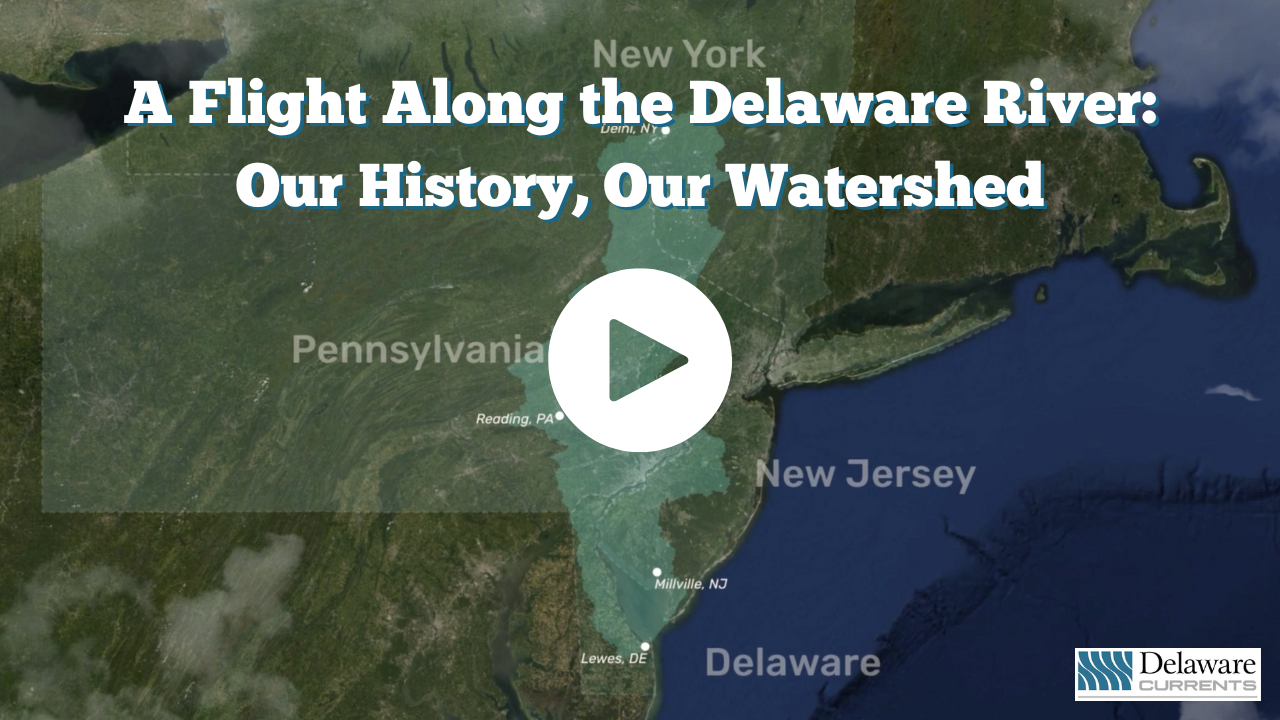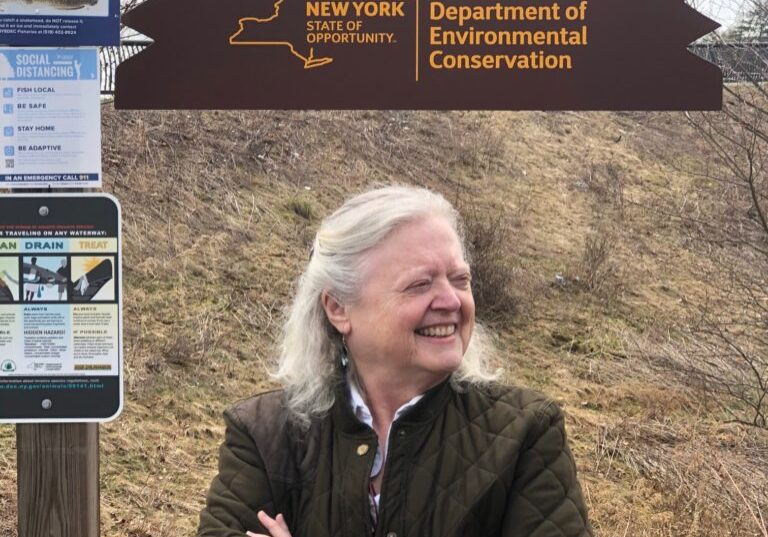
‘Politics has reached into the watershed’: DRBC adopts resolution about DEI and climate change
| June 26, 2025
On the agenda for the Delaware River Basin Commission’s June 11 meeting, the resolution didn’t look all that newsworthy:
“A Resolution for the Minutes concerning the Commission’s use of Federal funds.” But when it was read out in full, (you can read it all here), it was indeed newsworthy.
There were lots of WHEREASes, but the key paragraph is this:
“In recognition of policies of the current federal administration, from this point forward and for as long as these policies remain in effect, federal funds awarded hereafter to the Commission through the United States Army Corps of Engineers shall not be used directly or indirectly to support programs or policies that advance the principles of “diversity, equity, and inclusion” or the concept of “climate change.”
It passed unanimously by the commissioners, with no discussion nor any abstentions.
But there was a reaction from the audience as this was an in-person meeting. The DRBC usually holds an in-person meeting in one of the watershed states each year. This year, it was at the Nature Nurture Center in Easton, Pa.
In the audience were mostly people who were there in support of the launch of a “No Frack Pledge,” which was announced at a press conference before the DRBC meeting by the Frack Ban Coalition.
What they said about this resolution was noteworthy.
Tracy Carluccio, deputy director, Delaware Riverkeeper Network, said: “I am shocked by this resolution. It seems to suggest that we erase the goals of diversity, equity and inclusion. We cannot erase climate change. Politics has reached into our watershed.”
Josephine Gingerich of Physicians for Social Responsibility, said, “I am appalled that none of you (the commission members) opposed this resolution or abstained.”
This was the response by the DRBC to questions about the resolution’s effect on the commission’s work:
The funding restriction noted in the resolution is limited to potential future funding provided through the U.S. Army Corps of Engineers. It does not affect funding from any other source, including that provided by the Commission’s four state members. Importantly, all funding the Commission receives will continue to support the Commission’s mission as articulated in the Compact, for the benefit of the more than 14 million people who rely on the water resources of the Basin.
Total federal funding received by the DRBC over the last three years (FY23-25), through the Army Corps and other federal sources such as federal grants, was approximately 22 percent of the Commission’s operating budget.
This seems more than a little ironic, that the federal government is getting deep into the weeds of the DRBC’s funding when it is the most recalcitrant partner in supplying the promised funding for the DRBC. These stories will shed some light on the background of funding for the DRBC:
In 2023, For the first time in a dozen years, the feds will pay their fair share of DRBC funding
In 2024, DRBC gets $715,000 in federal money through U.S. Rep. Bonnie Watson Coleman
So, before the Trump administration, the DRBC could look forward to a pathway to get the federal dollars it needed to do the work that the compact demands. It had set up an Advisory Committee on Climate Change to address the urgent need for a shared response to the climate crisis by the watershed states. The committee’s last meeting was on Dec. 17, 2024.
And from the 2024 story; “It was also announced by the DRBC’s deputy director, Kristen Bowman Kavanagh, that the DRBC will be devoting $1 million — almost 70 percent of recent federal funding — to advance climate resilience in the basin.”
Also from the 2024 story: “There was the expected big beautiful check that the speakers gathered around and for the sake of the day’s proceedings, the check was ‘drawn’ on the fictitious account of Watson Coleman. The actual check will come from the United States Army Corps of Engineers.”
So, even if U.S. Rep. Bonnie Watson Coleman can get a Republican-dominated Congress to agree to another $715,000, because it will come through the USACE, it cannot be used for anything related to DEI or climate change.

Frack Ban Coalition
The members of the coalition were in Easton to support the DRBC’s ban on fracking, which was adopted in February 2021.
Maya Van Rossum of the Delaware Riverkeeper Network, said: “To the governors of our watershed who are the commissioners of the DRBC: We the people will stand with you as long as you continue to defend our watershed from the ravages of fracking; we will stand with you in every way we need to in order to resist the abuses of pressure or power that either industry or the Trump administration seek to exert.”
Her remarks were echoed by: Catskill Mountainkeeper’s Taylor Jaffe; Doug O’Malley, director of Environment New Jersey; Barbara Arrindell, director of Damascus Citizens for Sustainability; Karen Feridun, Berks Gas Truth; Chris DiGiulio, Physicians for Social Responsibility.
Find details about the recent GOP-led efforts to reopen the fracking conversation here. And more about the pledge here.


![DC_Image [Image 4_Assunpink Meets Delaware] meets Delaware The Assunpink Creek on its its way to meet the Delaware River. The creek passes through woods, industrial and commercial areas and spots both sparkling and filled with litter.](https://delawarecurrents.org/wp-content/uploads/bb-plugin/cache/DC_Image-4_Assunpink-meets-Delaware-1024x768-landscape-14f069364113da5e8c145e04c9f2367c-.jpg)



